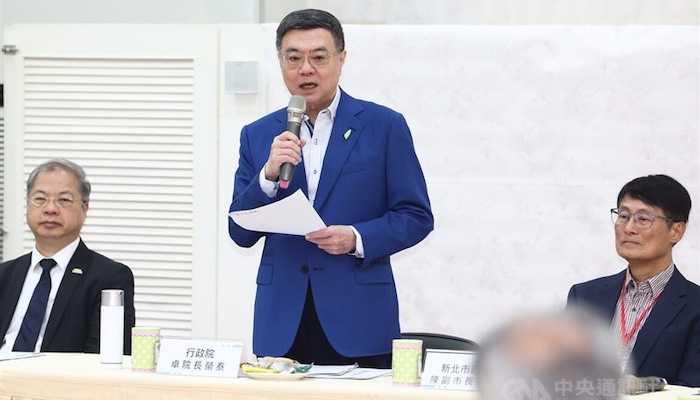
Taiwan Offers a $10 Billion Economic Assistance Package Amid the Threat of US Tariffs
A $10 billion aid proposal has been announced by Taiwan to boost its economy during the limited bargaining window provided by the US tariff delay.
Taiwan’s Premier Cho Jung-tai unveiled a new special budget of up to $10 billion on Thursday to help the island nation mitigate the possible effects of US tariffs, suggesting a major extension of the government’s economic relief measures.
Premier Cho said the initial T$88 billion ($2.71 billion) aid package would be expanded to T$410 billion ($12.61 billion) during a news conference in Taipei. Amid trade concerns with the United States, the funds are anticipated to stabilize the economy by protecting jobs, helping struggling firms, and subsidizing electricity costs.
In accordance with former US President Donald Trump’s “reciprocal tariffs” policy, a 32% tariff increase that was supposed to go into effect two weeks ago was temporarily halted. Taiwan has a limited amount of time to negotiate favorable terms and put local support measures in place because the tariffs have been halted for ninety days.
Taiwan’s parliament, which is controlled by opposition parties, still needs to approve the proposed special budget. The primary government budget has already been severely trimmed by these parties this year in response to their criticism of what they call wasteful and unnecessary spending.
The government of Taiwan has stepped up talks with Washington in the meanwhile, proposing to increase purchases of US goods in order to decrease its significant trade imbalance. The talks are partly focused on increasing imports of U.S. oil and natural gas, President Lai Ching-te said earlier this week.
Taipei’s intention to lessen the impact of restrictive US trade policies while bolstering economic resilience and protecting important industries is shown by the enlarged aid package.
All Categories
Recent Posts
Tags
+13162306000
zoneyetu@yahoo.com



